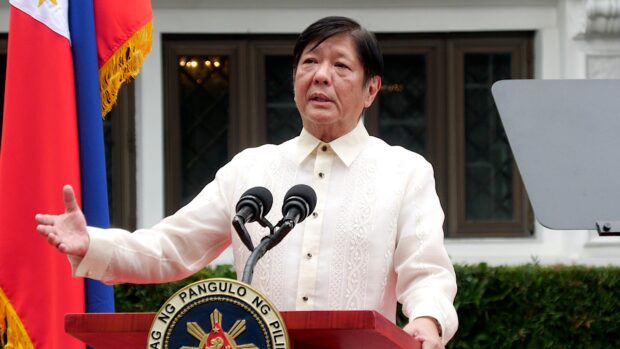Vietnamese maker of e-vehicles eyeing PH – Marcos
HANOI, Vietnam — Vietnam’s largest private company has expressed interest in tapping the Philippine market for its electric vehicles and batteries, and possibly setting up a manufacturing or assembly facility in the country, according to President Marcos.
Speaking to members of the Filipino community at the Melia Hanoi Hotel here late Monday, the President said he and Trade Secretary Alfredo Pascual had met with Vingroup, a company with a $21.1-billion market capitalization.
“They are interested in making batteries, currently the most important technology, and even bring in EV or electric vehicles,” he said.
The Vingroup plans to deepen its engagement with the Philippines through its subsidiary, VinFast, which has a valuation of $15 billion.
Testing PH market
VinFast plans to sell and launch its EV in the Philippines in April through a dealership to test the local market, to possibly set up a facility for completely knocked down (CKD) EVs or to have parts delivered for assembly on the site.
Article continues after this advertisementIn an earlier meeting on Monday, Marcos told Vingroup executives, led by chair Pham Nhat Vuong and vice chair and CEO Nguyen Viet Quang: “I am very happy to note your interest in expanding your operations to the Philippines and you’ve just begun organizing offices there. And I think there is much that you could do.”
Article continues after this advertisement“The Vingroup is well-known in the Philippines because we have… we are very much aligned on what we would like to do in the future in terms of electrical vehicle battery production,” he said.
Jibes with modernization
Such a venture would also be timely given the country’s modernization program for public utility vehicles, he said.
The Philippines could support battery production for EVs as it has all the elements necessary—like good reserves of nickel, cobalt, and copper — for such a venture, as a well as young, skilled, and educated workforce, he added.
“The key to take the full advantage of that workforce is for the skills… to get them [workers] to acquire the skills that are necessary for cybersecurity, digital banking, digital transfers of money, and of course artificial intelligence,” he said.
